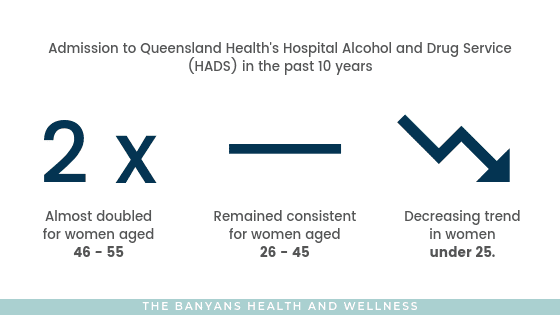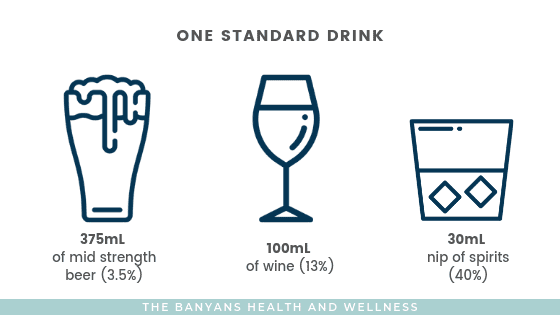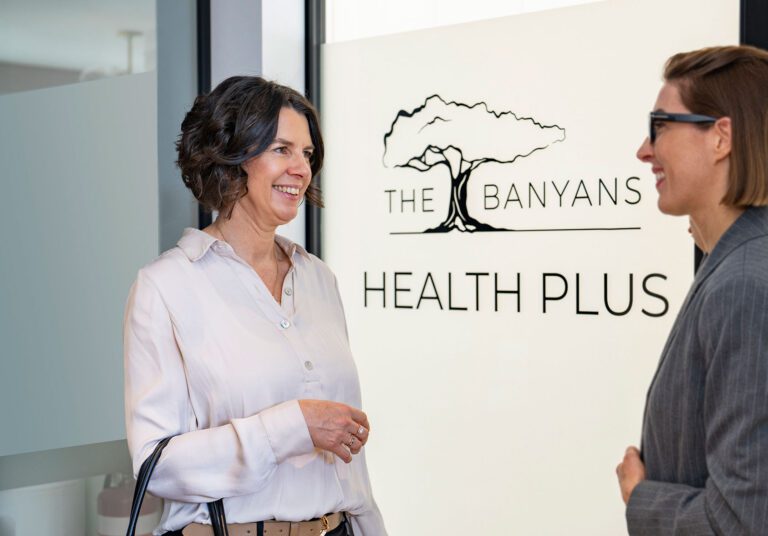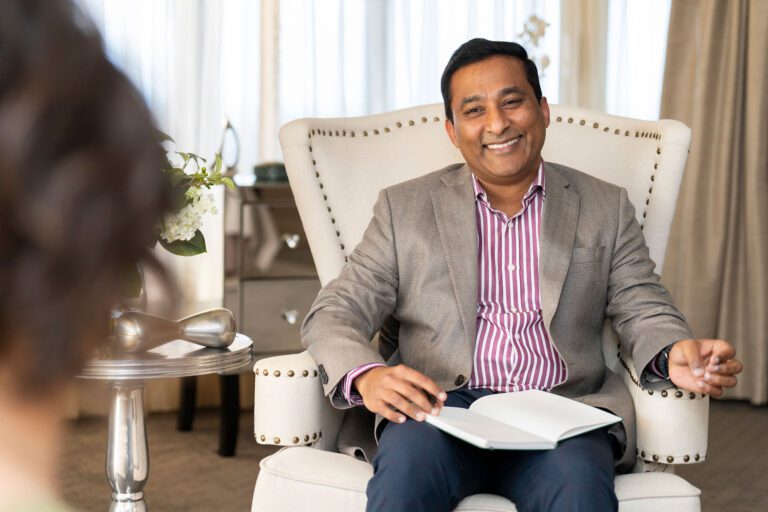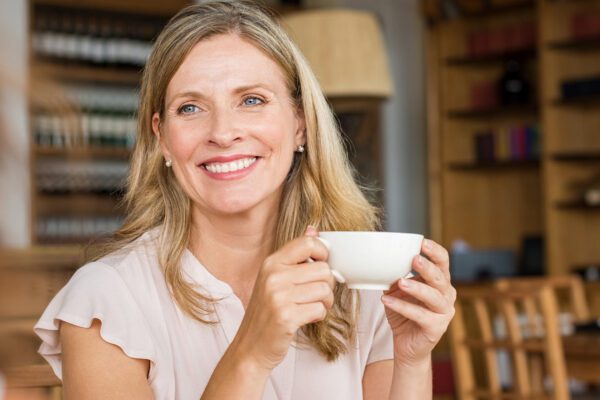
A recent report by The Courier Mail has coined the ‘Super Mum Complex’, an alarming alcohol trend in Australia’s middle aged women.
The Queensland Department of Health reports that admissions to the Hospital Alcohol and Drug Service (HADS) has almost doubled in the last ten years for women ages 46 to 55, with a soaring number of women relying on their evening ‘wine o’clock’ to take the edge off the looming pressure.
Lorilea Huon, a registered psychologist, reflects on this alarming trend, and the potential impact social media plays on cultural norms and the appearance that perhaps an evening glass of wine or two is a common daily ritual for mums and female working professionals.
Lorilea spoke to recent research, which indicates alcohol frequently being favourably depicted on social media platforms, and receiving positive responses. Examples such as memes and hashtags such as “Mummy’s Medicine”, “They whine, we wine”, and #mummyneedsadrink. More to note however, is that it appears there is a relationship between exposure to alcohol related posts and higher rates of drinking in some populations.
Understanding accidental alcohol misuse
Mummy bloggers around the world are being more open with their experiences. One lady wrote, “At some point, though, all the jokes about ‘mummy juice’ and ‘wine o’clock’ stopped being all that funny and relatable and started feeling awkward; and it’s only just recently that I’ve started to see why: they were ringing a little too true.”
One woman (who wishes to remain anonymous) has experienced accidental alcohol dependency first hand, with the pressures of being a full-time working mother leading her to an unhealthy relationship with alcohol. She says, “The hours between 4pm and 6:30pm really are witching hour for both mothers and working women,” she says. “To be honest, a glass wine does help soothe the tension, and it can be so easy to get into the habit of winding down with a glass or two most nights.”
The statistics lend themselves to support that more problematic drinking begins, and is maintained, in the home.
The annual DrinkWise reports (2018) showed that 63% of all alcohol consumption occurs in the home. This is leading to many people overlooking their alcohol dependency, as it becomes a part of their habitual day to day routine. “It’s important that women are aware of how our thoughts, beliefs and culture of ‘wine o’clock’ may be contributing to unhealthy behaviours and it helps to be mindful of how our ideas shape what we determine to be ‘normal.’”
Alcohol becomes a coping mechanism for stressed out mums
One mother says that many women believe that they “don’t have the time to turn to healthy coping mechanisms,” like exercise, meditation or therapy.
Lorilea agrees. “People are becoming more aware of the options for more healthy coping strategies. However, it seems older females may not be so quick to make these changes, compared to the changing trends we are seeing in young people. Although there may be many sociological, psychological and public-health related factors such as education which may contribute to the decrease in problematic drinking in young people, these changes are not reflected in older generations.”
“When we often think of problematic drinkers, an image of young nightclub goers is usually conjured. However, what mums in these age brackets may have is increased resources (i.e. time and money) to drink more regularly, and higher incidents of life events and social transitions (such as grief and loss, illness, loneliness, changing in occupation & adjustment to parenting) that may lead to using alcohol to cope.”
Lorilea encourages women to “seek help from a local psychologist, doctor or alcohol support group to assist in increasing education and coping strategies rather than turning to alcohol. “Lorilea stresses however, “that due to psychological and physical health risks involved professional support should be sought before attempting to ‘give up the drink’ on their own.”
Lorilea encourages women to seek help from a local psychologist, doctor or alcohol support group before attempting to ‘give up the drink’.
Dr Christian Rowan is an Addiction Medicine Specialist, and strongly advocates for a comprehensive treatment approach to any change in alcohol use, especially for those who are trying to cut back from daily consumption. “The body naturally adapts to regular alcohol consumption, which is why some people notice that the more regularly they drink, the more they need to drink to reach the desired effect,” he explains. He also affirms that going “cold turkey” from regular alcohol usage can be dangerous if not properly managed.
“Anywhere from two standard drinks or more on a regular basis (more than twice a week) is likely to be verging on problematic alcohol consumption,” Dr Rowan explains. “It’s important that women are aware of how wine o’clock may be more worrying than they think.”
“It is integral that a medical professional is involved in the recovery process,” he advises. “However, you also need to address your dependency from a psychological, physical and nutritional perspective.”
“Regular and/or excessive alcohol consumption wreaks havoc on the gut microbiome,” teaches Lisa Cutforth, Clinical Nutritionist. “This can lead to a number of side-effects, such as nutrient deficiencies, malabsorption, tiredness and low mood,” she says. Correcting these issues can be a crucial step in restoring your body and mind towards better mental and physical health. “This can play a big part in breaking the cycle of alcohol use, and encourage you towards a happier, healthier life.”
Australian women seek help from private treatment centres
Peter Hayton, the Clinical Director at The Banyans Health and Wellness has noticed a shift in women accessing help in private residential programs like The Banyans. “Women are more likely to seek help for mental health difficulties than men. However, they are much less likely to seek treatment for alcohol misuse,” he shares. This may be contributed to by lack of understanding, but also an element of social stigma.
The Banyans Health and Wellness is an individual program for treatment from alcohol misuse, including treatments aspects from medicine, psychology, physical health and nutrition. “The Banyans designs tailored programs for chronic stress and burnout, substance misuse, eating disorders and more. Our retreat style, luxury residence and assurance of confidentiality means that women can be comfortable in seeking professional help at The Banyans.”



